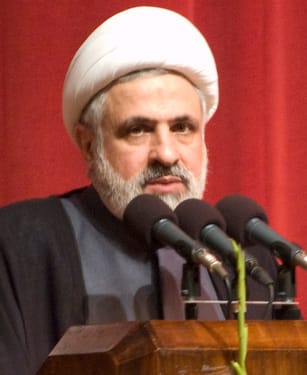Naim Qassem Appointed Secretary-General of Hezbollah: A New Era Following Nasrallah’s Death

Hezbollah has announced the appointment of Naim Qassem as its new Secretary-General, following the death of longtime leader Hassan Nasrallah in a recent Israeli airstrike. This appointment was formalized through a vote by Hezbollah's Shura Council and reportedly received the endorsement of Iranian Supreme Leader Ali Khamenei. Qassem’s leadership marks a significant transition in Hezbollah's history, given Nasrallah’s central role in the organization since the 1990s. Nasrallah’s death has not only created a vacuum within Hezbollah but has also raised concerns across the region, as Hezbollah is a major player in Lebanon's political and military landscape.
Nasrallah’s Legacy and Qassem’s Background
Hassan Nasrallah, who led Hezbollah for nearly three decades, transformed the organization into a formidable military and political force in Lebanon, aligning it closely with Iran's "Axis of Resistance" against Israel. Under Nasrallah’s leadership, Hezbollah expanded its military capabilities and influence, impacting Lebanon’s internal politics and its stance against Israel. Nasrallah’s successor, Naim Qassem, is no stranger to Hezbollah’s core ideology and operations. A founding member and former deputy secretary-general, Qassem has been instrumental in Hezbollah's development and political strategy since the 1980s. His experience and ideological commitment position him as a stabilizing figure for Hezbollah during this transition.
Iranian Support and Strategic Implications
Qassem’s appointment has reportedly received the support of Iran’s Supreme Leader, a move that reflects the strategic partnership between Iran and Hezbollah. Iranian officials are hopeful that Qassem’s leadership could open new diplomatic pathways, possibly including negotiations with Israel to de-escalate tensions in Lebanon. However, Qassem faces challenges from the recent assassination of a potential successor and ongoing hostilities with Israel. The implications of this leadership shift extend beyond Hezbollah, as Iran has long used Hezbollah as a strategic ally to counterbalance Israel and project its influence across the Middle East.
Hezbollah’s Future Under Qassem
Although Qassem has assumed the role of Secretary-General during turbulent times, his extensive experience within Hezbollah’s ranks may provide continuity and stability. Qassem’s rhetoric in recent statements reflects a commitment to maintaining Hezbollah’s resistance against Israel. Observers speculate that his tenure may involve balancing military resistance with political negotiations, as Lebanese officials and Iran see potential benefits in managing hostilities with Israel amidst Lebanon's ongoing crises.
The international community will be closely watching how Qassem’s leadership affects Hezbollah’s direction. His tenure could steer the group toward a period of redefined tactics, balancing its military objectives with Iran’s strategic goals. For now, Qassem’s leadership marks the beginning of a new era for Hezbollah, as he navigates the organization through one of its most challenging transitions.
Photo by: Sebastian Baryli from Wien, Österreich, CC BY 2.0
